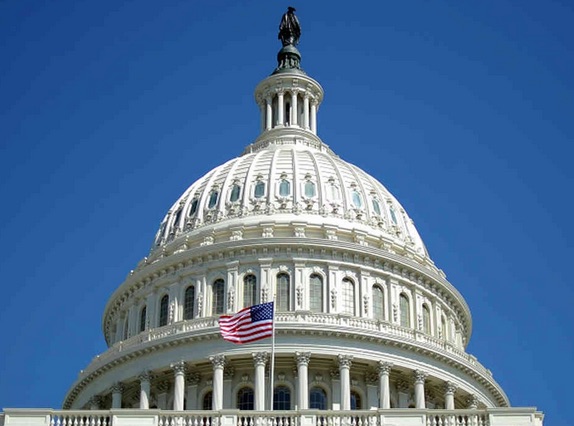 ATP Takes Active Role in the Reauthorization of the Every Student Succeeds Act (ESSA) ATP Takes Active Role in the Reauthorization of the Every Student Succeeds Act (ESSA)
Three sets of comments submitted in July and September of this year outline the concerns of ATP's Education Division members in regard to the reauthorization of the Every Student Succeeds Act (ESSA) by the U.S. Congress.
The ESSA has its roots in the Elementary and Secondary Education Act which was previously reauthorized in 2002 as the No Child Left Behind (NCLB) Act, and in 2015 as the Every Student Succeeds Act. The ESSA is the main federal law supporting K–12 public education in the United States.
Actions taken by ATP included submitting comments to the U.S. Department of Education in July which addressed concerns about the proposed accountability regulations under ESSA, such as N-size and Opt Out provisions.
“Participation requirements can lead to complex psychometric issues,” stated ATP Legislative Counsel Alan J. Thiemann, who conferred with ATP Education Division members in identifying the issues most relevant to ATP members and crafting comments that would address these concerns.
“In addition to N-size, it is equally difficult to balance competing interests about the amount of testing used by a state against making every effort to meet the participation requirement, especially in the face of parental decisions to ‘opt out’ children from the statewide assessment,” ATP leaders wrote in the submitted comments. “Under the ESSA a state is required to provide useful information about student achievement and growth on an aggregated and disaggregated basis. The ATP recommends that the Department should clarify that, in order to make accurate, reliable, and valid decisions about its programs, schools, and districts, a state should take appropriate steps to ensure that the data collected be as complete as possible. Census testing (for all cohorts in a grade) is by far the most accurate means of creating accurate, reliable, and valid test results.”
ATP went on to comment directly on Opt Out, writing that, “In the same vein, the ATP recommends that the Department provide guidance in its regulations for how each state should provide appropriate evidence to document its efforts to ensure it meets the 95% participation level, as well as how it will remedy any shortfall. This evidence should include a discussion by the state of how it has handled any “opt out” concerns in order to provide an adequate census for testing, without any prescriptive requirements being imposed by the Department.
Additional comments were submitted to the Department of Education in September on the proposed ESSA assessment regulations, including observations about innovation, quality, the requirement for universal design, evidence, multiple measures, peer review, and alternate assessments and accessibility issues. Among the recommendations:
- ATP leaders recommended that the Department of Education formally acknowledge innovation as a goal of the proposed guidelines.
- ATP noted that there are inconsistencies in the usage of testing terminology and urged the Department to adopt the terminology of the Joint Standards and limit language in regard to assessments to “valid, reliable, and fair.” And, in the same vein, urged clarity by expressly referring to “universal design of assessments” as opposed to “universal design for learning.”
- ATP leaders noted the lack of any clear guidance for States on what constitutes evidence when it comes submitting its assessments for peer review under the requirements of the ESSA. ATP recommended that the Department, at a minimum, clarify that the technical manual developed for any large-scale assessment should be considered as appropriate evidence in these settings.
- ATP reiterated that the Department must ensure that a process exists by which the technical quality of state assessments can be evaluated on a consistent and objective basis under the Joint Standards, regardless of whether a state is a member of an assessment consortium; and that any peer review process should include adequate training for reviewers and a due process for a state to challenge a decision.
- ATP recommended that the Department clarify that all assessments, including alternate assessments, should be standardized assessments that adhere to the Joint Standards and are of high quality, fair, and reliable, and produce valid results and interpretations. The comments went on to explain that in the past too many alternate assessments were individualized, often with the mistaken impression that they would better meet the requirements of IDEA. Any suggestion that states should use non-standard, non-objective measures for the alternate assessment (or for that matter the general assessment) is inappropriate.
Also in September, ATP submitted comments that addressed the proposed regulations developed to implement the innovative assessment demonstration authority provision in the ESSA. ATP urged the Department to include competitive bidding provisions, noting that “the US testing industry possesses a wide range of expertise in dealing with assessment innovation, and this requirement will ensure that every entity, regardless of size, is able to present ideas and potentially participate in the innovation process.”
Thiemann emphasized the importance of ATP members developing a consensus and submitting comments in a unified voice “which will make a greater impact as we move forward through this process."
|